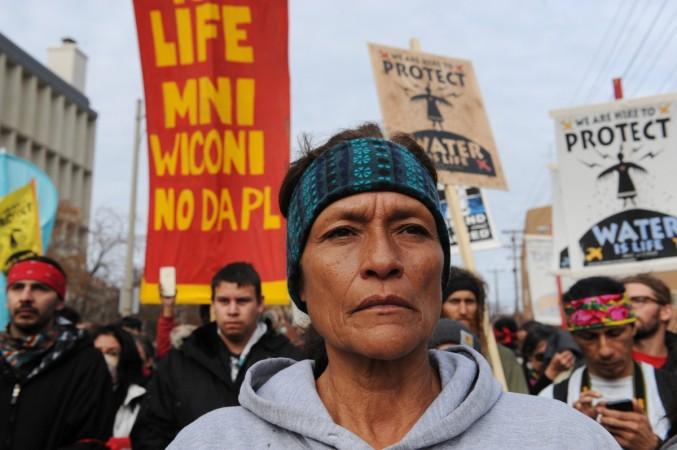
The United States Army on Friday notified the Standing Rock Sioux Tribe protesters demonstrating against the Dakota Access Pipeline that public will no longer be allowed in the areas currently being used for protests.
The Standing Rock Sioux Tribe has been opposing the Dakota Access Pipeline project since 2014. However, the issue gained momentum recently when thousands of protesters including Native Americans gathered in North Dakota in an attempt to block the 1,200-mile project. The protesters cite that the pipeline would travel underneath the Missouri River which is the primary source of drinking water for the tribe and can contaminate the water. The Standing Rock Sioux Tribe has also said that the pipeline traverses a sacred burial ground.
A district commander with the US Army Corps of Engineers (USACE), John W Henderson, in a letter to the tribe, said that the area will be shut by December 5 and anyone who is found to be on the "Corps-managed land" in the northern side of the Cannonball River after the day will be subject to prosecution.
I am closing the portion of the Corps-managed federal property north of the Cannonball River to all public use and access effective December 5, 2016. This decision is necessary to protect the general public from the violent confrontations between protestors and law enforcement officials that have occurred in this area, and to prevent death, illness, or serious injury to inhabitants of encampments due to the harsh North Dakota winter conditions," the letter read.
The chairperson of the Standing Rock Sioux Tribe, Dave Archambault II, also released a statement saying that the entire tribe is disappointed by the move, but their resolve to protest the pipeline from being built has not been weakened.
It is both unfortunate and ironic that this announcement comes the day after this country celebrates Thanksgiving – a historic exchange of goodwill between Native Americans and the first immigrants from Europe. Although the news is saddening, it is not at all surprising given the last 500 years of the treatment of our people. We have suffered much, but we still have hope that the President will act on his commitment to close the chapter of broken promises to our people and especially our children," Archambault II said.








